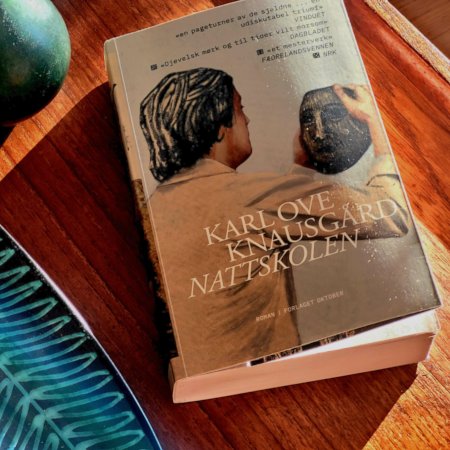Sometimes the beginning of a new year coincides with enjoying a new book. I had the big pleasure to read “Nattskolen”, a relatively new book written by the Norwegian author Karl Ove Knausgård. Published in 2024 by Forlaget Oktober, Oslo. It will certainly be available in English and German, too. In Germany it will get the title “Die Schule der Nacht”.

It took me the first two days of 2025 to read it and I enjoyed every second of it. I cannot remember to have had this intense joy of reading during the last 5 years or so.
What is the book about? In short it picks up the Faust theme – in this case the protagonist is a (faustic) photographer who feels the need and power to create something new, above average and something lasting. In his eagerness and growing effort to fulfill his ambition as a student he gets more and more wrapped up in an interaction and deal with forces out of his control. Driven by his at least in parts arrogant and egocentric attitudes he ends up in a kind of contract with dark powers – without any such contract ever being explicitly signed in the book. The contract comes into existence by the protagonist’s thoughts and intentions, his strong wishes and by his deeds. He gets what he wants – without really understanding why. But his success and career as a professional art photographer comes with a high price in the end.
You may say: Oh, again the Faust theme. Didn’t we get enough of all aspects of this theme in works of e.g. Marlowe, Goethe, Dostojewski, Thomas Mann and Klaus Mann?
Well, my answer is: There are so many original thoughts and facets in the work of Knausgård that it will take you maybe months or years to evaluate them, dwell upon them and think them through. In addition you get even philosophical ideas wrapped up in a lively, but precise and sometimes almost surgical, thought-dissecting language. Typical Norwegian sentences – rather short in comparison to what some of the German authors named above worked with. From Knausgård you get no fuss – but a direct transmission of feelings and thoughts of the protagonist as well as his (filtered) receptions of a world ruled by inevitable decay.
What you get in addition: Deep reflections on time, events in time, death, entropy and chaos, art and particular aspects of photography as well as insights in the history of photography. “One could think of a photography as the dead body of an instant”. (Freely translated by me – and I am not sure whether “instant” reflects the intentions of Knausgård correctly or whether “moment” was the better word … Knausgård used the Norwegian word “øyeblikk”).
Of course, this metaphysical interpretation of a photography are almost forces you to think: What is a sentence then, what a book? So, read Knausgård’s phantastic book – and maybe get your answer.
P.S.: I also recommend the following stories in the Quanta Magazine as a source of supplemental thoughts: